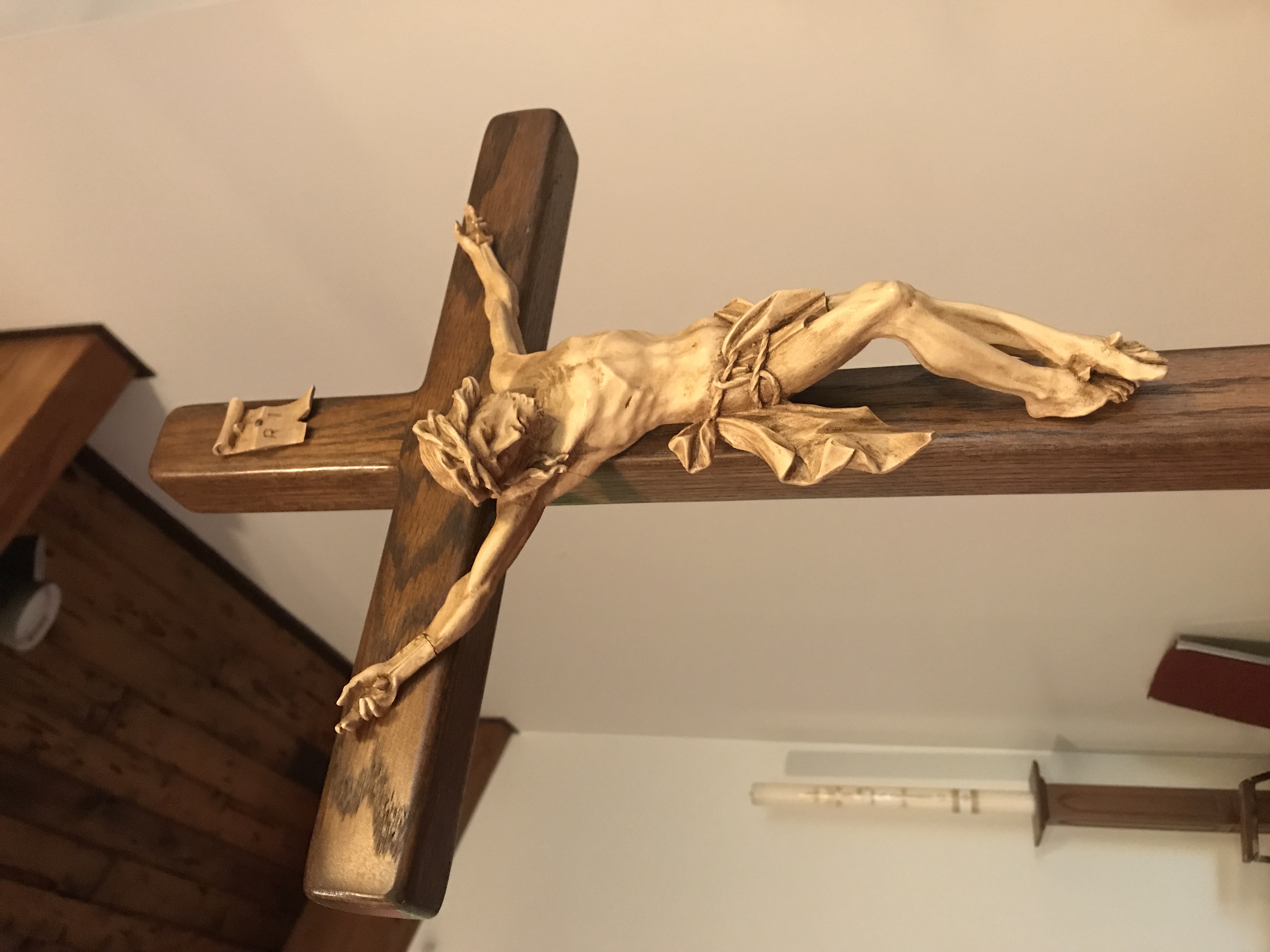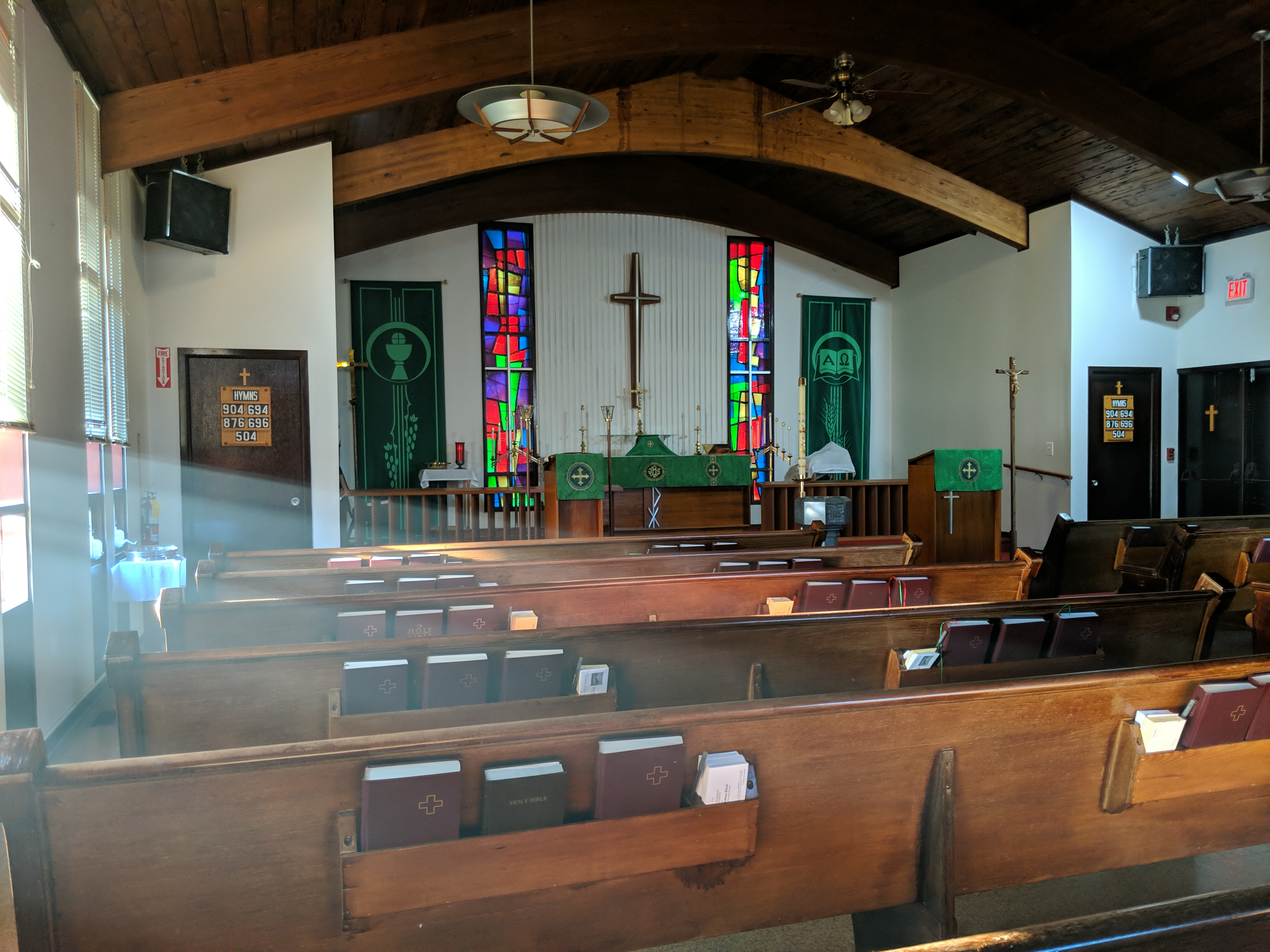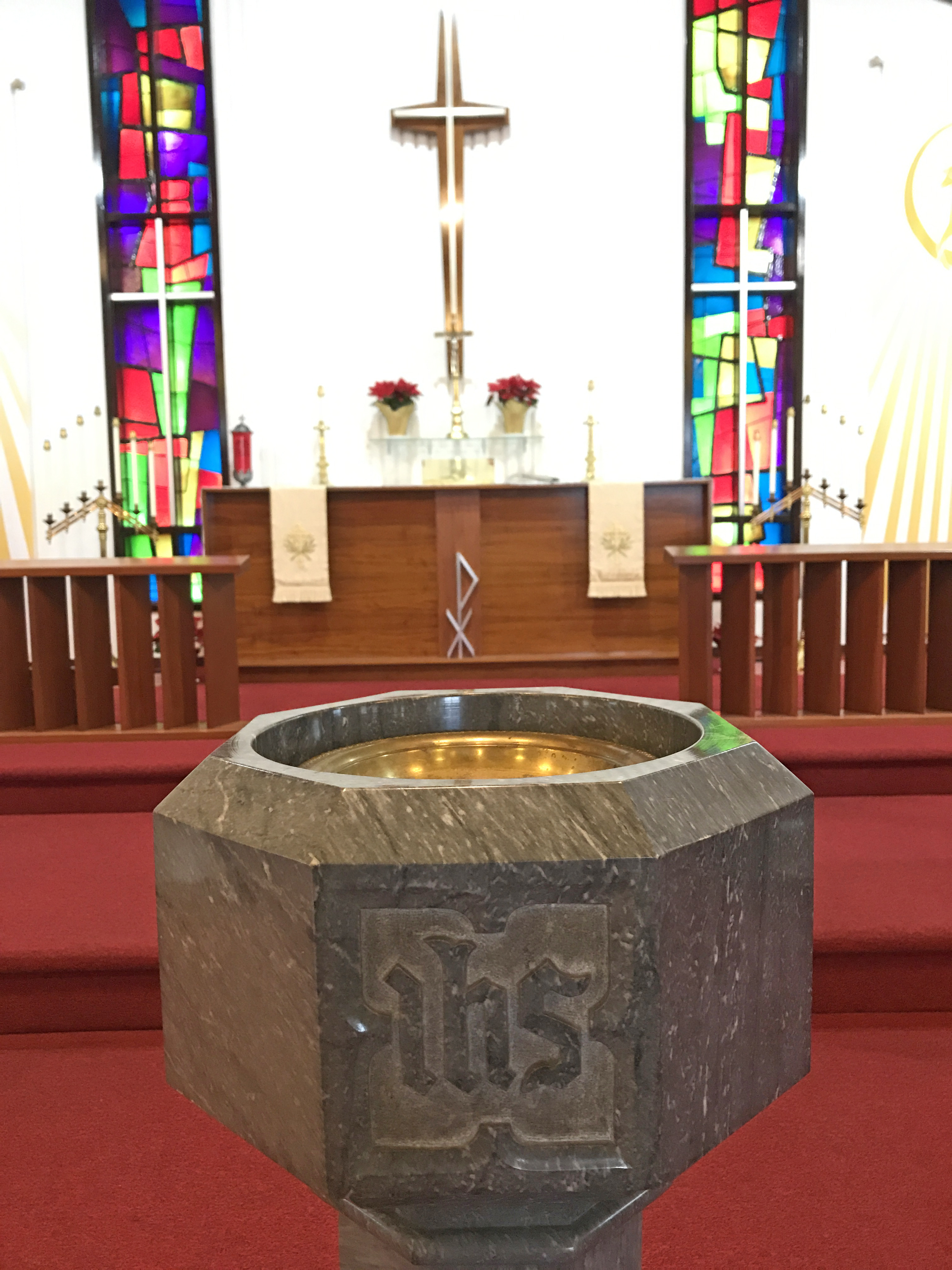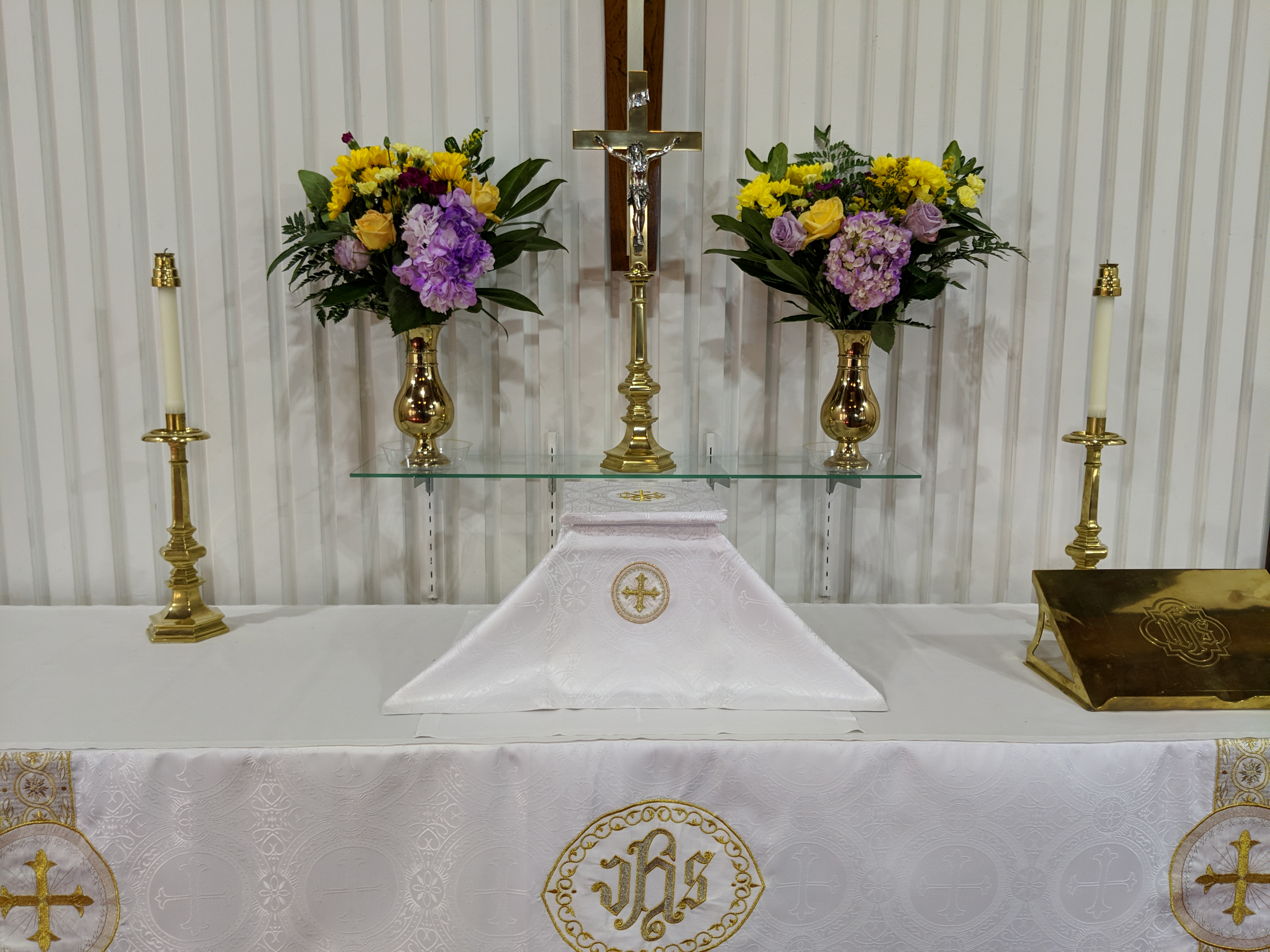The Eleventh Sunday after Trinity – Sunday 11 August A✠D 2024
✠ Psalmody: Psalm 68:5b, 6a, 35b; 1, 3, 7a, 10b, 19;28:7b, 1a, 2a;90:1
✠ Lection: Genesis 4:1–15;1 Corinthians 15:1–10;Luke 18:9–14
In the Name of the Father and of the ✠ Son and of the Holy Spirit. Amen.
The pairing of Genesis, chapter four, with the Holy Gospel from St. Luke, chapter 18, benefits us through Scriptural parallels entering into the ear and mind. Both instances tell of two contrasting men approaching the Lord. First, we see our first parents placed into Paradise, into the incomparable Garden of Eden, wherein they tragically brought sin into that place, into the world, into humanity, into a blessed existence where there had only been goodness, purity, and righteousness. By the original sin, they struck themselves down, out of their right-standing before God, yet the Lord did not follow suit. They were not instantly cast into the outer darkness, yet separated by an impassable sea of sin-ridden chaos, unable to return by their efforts into the Lord’s good graces. He had instead reserved His wrath, for later; reserved is, yea, for Himself. He knew the Fall would happen and, from before the foundations of the world were laid, He had plan A in place to redeem Adam, to redeem Eve, to redeem all their descendants, and to restore that which they had lost. God told them clearly the tragedy of what they had done, the effects it would have on the world; effects on the man’s toils in bringing forth fruit from the ground, produce of the earth; effects on the woman’s labors in painfully bringing forth fruit of the womb, children to multiply and fill the earth. Out of Eden they were cast, wearing oddly enough, not their exposed shame, but the Lord’s atonement, His covering of their shame by garments made of animal skins; His covering of their sinful condition by the shedding of blood of sacrificed animals showing that by His hand, through blood being poured out, His mercy would be extended to them, and likewise, to those who follow.
Such was the beginning of this long era of a fallen world, a cursed creation, a pending doom. It is an umbrella of doom under which life still continued and does to this very day. Eve bore a son, the very first named offspring of this world, Cain. She also bore Abel, another son, and for sure for many years before that bloody day in the field when Cain took the life of his brother, Adam and Eve lived in the hope and promise of the coming Seed Who would redeem them from their sin, Who would right what they had wronged. Living in the promise meant they depended upon it every day, believed in it every day, rejoiced in it everyday, and taught their offspring about the Lord their God Who had been so merciful to them in their sin and was merciful everyday anew. Sadly enough, even after a life begun and lived in the fresh shadow of the Promise given in the Garden, Cain grew up to be not a man of trust in God, but one of unbelief; a man dependent not upon faith, but of a life void of it.
The Christian today may be tempted to fear the result of this story of Cain. Listen to it again:
And in the process of time it came to pass that Cain brought an offering of the fruit of the ground to the LORD. Abel also brought of the firstborn of his flock and of their fat. And the LORD respected Abel and his offering, but He did not respect Cain and his offering. And Cain was very angry, and his countenance fell. So the LORD said to Cain, “Why are you angry? And why has your countenance fallen? If you do well, will you not be accepted? And if you do not do well, sin lies at the door. And its desire is for you, but you should rule over it.”
If you do well, will you not be accepted? The sinful flesh latches onto these words with haste, as they are translated here, and attempts to cause the believing heart to forget all that it knows about justification, about salvation by faith alone, freely given on account of Christ alone; to believe that doing well, that being good, will warrant acceptance from God. The heart is tempted to forget that man is saved by grace through faith, not a result of works, and is then likely to tug the burden of sin back upon yourself, tempting you to think futilely once again that it is up to you work hard enough, to be good enough, in order to be accepted by God. But this is not what Moses meant when He recorded these words of the Lord spoken to Cain, for we are to understand the missing key ingredient in Cain’s offering, causing God to have no regard for it. Hebrews 11:4 tells us, “By faith Abel offered to God a more acceptable sacrifice than Cain, through which he was commended as righteous, God commending him by accepting his gifts. And through his faith, though he died, he still speaks.” Your beloved brother in the faith, Abel, the first soul to be ushered out of this world into the presence of his Savior, joyfully awaiting the Last Day when he will be raised with all the dead, this, your beloved brother, still speaks to you insight that what is pleasing to God is that which is done in faith, by faith, because of faith. It is faith that Cain lacked, faith that lived in accordance with Whom God is and what He has promised, and without faith, it is impossible to please Him, because the faithless heart rejects God as He is. Therefore, there is nothing else that Cain could’ve done to have pleased God and made His offering acceptable, because no action in itself is worthy without faith in God the Redeemer undergirding them all. Likewise, there is nothing else that you can do by your own efforts, by your own self-qualification, by your own works that can make you, your offerings, your life any more or less acceptable to God than it is already secure there in your risen Lord, Jesus Christ. By faith in Him alone does your true, dear Father in heaven look down upon you as His true child. This is the rest that Christ gives and compassionately desires you to experience in days of peace that surpasses all understanding.
Cain and Abel presented themselves before God, both making offerings, yet only one doing so in faith. See now how this translates into our Lord’s parable of the Pharisee and tax collector. Similarly, each man knew that the worship of God meant seeking out His presence where He was to be found. The sons of Adam brought offerings to the altar of God and in the temple these two men came and offered prayers in the house of the Lord, yet again only one was doing so in faith. Like Cain, the Pharisee looked to something other than faith in God’s promise upon which to base his standing before Him. He even pompously lists the degrees of his holiness out for the Lord, just in case the omniscient Maker of heaven and earth had missed just how good he was doing. But there are no heavenly gold stars or good enough passing grades to be earned by those plagued with sin. The entrance into the Kingdom of God is not through our works, but through Christ’s.
We don’t need to be so bold so as to fall into the same error. It takes not us plainly claiming to God that we are the reason why He should be pleased with us. Our danger lies in our everyday thoughts as we by default compare ourselves to those around us, which extremely rarely proves to be a good thing. Because either we’re going to look at the outstanding life of a family we come to idolize, believing that they suffer not as we do, have better children than we do, are less stressed than we are, or have better luck and fortune than we do, thus leading ourselves into despair because the lives we’ve been given by God don’t measure up to this imagined gold standard. Such gold is heavier upon us than even the real thing. Or, that’s not what we do, then we make ourselves out to be the diamond standard of having arrived, having gotten it figured out by our own efforts and hard work, that we are the ones who deserve the credit for all the things that we have empowered, allowed, and enable Almighty God to do in the lives of which we see ourselves to be ultimately in control. Drop all the comparisons and go to the moral source, the Ten Commandments, that tell you all-too-clearly what you need to know about how you stand on your own before the Holy Lord of Hosts. Then, in repentant faith, call upon the mercy of God that He, in less-than-a-moment’s notice, is ready to pour out upon you because the wrath for your sins has been placed elsewhere, namely, upon His beloved only begotten Son, the Standard Who deserved it not, Who hung until His face fell down into death, for you.
The tax collector, holding fast in faith to all of God’s hard truth, both harsh and hopeful, knew his true condition if left to himself: a sinner. A sinner in deep need of the mercy of God; dependent solely upon the Almighty in heaven looking down upon him in such mercy, covering his sins the way He did Adam and Eve’s, forgiving his sins for Christ’s sake and by faith in Him, the Promised Seed Who redeemed the world from its insurmountable, mountainous debt of sin. This man knew his condition and believed that only God in His mercy could cause his downcast face of sinful shame to be turned joyously upward in relief to look upon Him Who has taken away his sin. Thus, He went home justified, just as, in faith, you will today.
Now venture back again to what Yahweh said to Cain with the proper understanding of how you are to be accepted by God. In the original text is word imagery of being lifted up, just as the same word is used in Psalm 32: “Blessed is the one whose transgression is forgiven,” or rather literally, “Blessed is the one whose transgression is lifted up,” is what the Word says, meaning the burden of sin and the condemnation it brings has been lifted up and off, lifted up like a troublesome, heavy yolk of guilt, worry, shame, and judgement; lifted up like a face that is downcast by the weight of the Law upon the sinners conscience, in turn leaving the sinner no longer cursed, but blessed, no longer downcast in face, but joyously looking up to Him Who loves and forgives and loves to forgive. He Who lifts the judgement of sin from upon your shoulders and placed it on His own as He carried it to His death on the cross is the very same God Who lifts up your face to heaven, now giving you the right to become children of God, having the boldness, the comfort of calling God Almighty your Heavenly Father. There is no comfort, boasting, or confidence to be found in how good you’re doing in your works; how you’re not making the mistakes that others around you are. How you’re not falling for the traps this world is setting for billions to run headlong into Hell. You have earned nothing for yourself but are in the same position as the humble tax collector who beat his chest and said, “God, be merciful to me, a sinner!” Nor shall you despair if you see yourself as chief of sinners. For all, there is always hope in Jesus. You, dear sinner, who have come here before God this morning to seek His mercy, know that you have found it, by faith, in Christ Jesus, the One Who has set you free from the slavery of self-righteousness, the burden of works-righteousness, and the despair of repeated failure. All the righteousness the Lord requires of you, Christ did and credits it to you, by faith in Him. All the payment for sins that you continue to commit, payment that the Lord demands of you, Christ has paid once and for all by the shedding of His holy, innocent, precious blood for the forgiveness of your sins. In Christ, your Lord, all your shame is covered by God’s gracious doing. In Christ, your Lord, you have reason-never-to-end to lift up your face, your very eyes toward heaven, for there you truly have a loving God, full of grace and mercy.
In ✠ Jesus’ Name. Amen.















Comments are closed, but trackbacks and pingbacks are open.